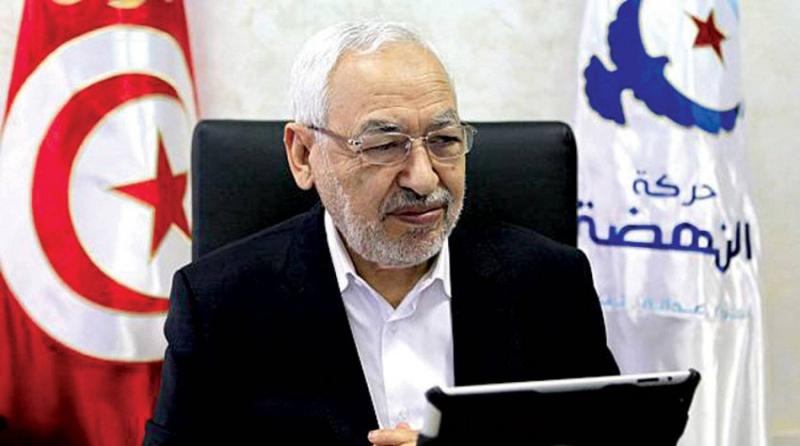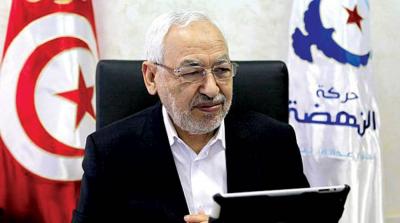The specialized criminal court in Tunisia has sentenced the leader of the Ennahda party, Rached Ghannouchi, and his brother-in-law, Rafiq Bouchlaka, to three years in prison for their involvement in a case related to foreign funding for their party. Lawyer Monia Bouali stated to Reuters on Thursday that a Tunisian court ruled to imprison Ghannouchi, a prominent critic of President Kais Saied, for three years on charges of receiving foreign funding. Ghannouchi, 82, has been in prison since April of last year, and previously received a one-year sentence for inciting against the police.
Bouali noted that the court issued a similar ruling against his brother-in-law, Rafiq Abdel Salam, a senior figure in the Ennahda party, in the same case, in addition to imposing a fine of $1.1 million on the party. Last year, Tunisian authorities banned meetings in all Ennahda party offices and police closed the headquarters of the Salvation Front, an opposition coalition, in moves described by human rights groups as an effective ban on the party.
Several other politicians have also been imprisoned since last year, accusing Saied of executing a coup after dissolving the elected parliament and transitioning to rule by presidential decrees. These individuals face charges of conspiracy against state security. Saied, who consolidated his new powers in a constitution that was put to a low-turnout referendum two years ago, denies that his actions are a coup, stating they are necessary to save Tunisia from years of chaos. He has characterized his opponents as "criminals, traitors, and terrorists."
Ghannouchi was in exile before the 2011 revolution and served as the parliamentary speaker from the 2019 elections until Saied dissolved the council in 2021. Abir Moussi, leader of the Free Constitutional Party and a fierce opponent of Saied, has also been imprisoned for months after being arrested outside the presidential palace. Moussi accuses Saied of attempting to silence her and keep her out of the race for the anticipated presidential elections this year.
The opposition and human rights groups accuse Saied of imposing an authoritarian regime, imprisoning most opposition leaders, silencing the press, and controlling the judiciary. However, Saied, who rejects these accusations, asserts that he will not be a dictator and is determined to cleanse the country of the corrupt elite and the widespread corruption of the past decade.




